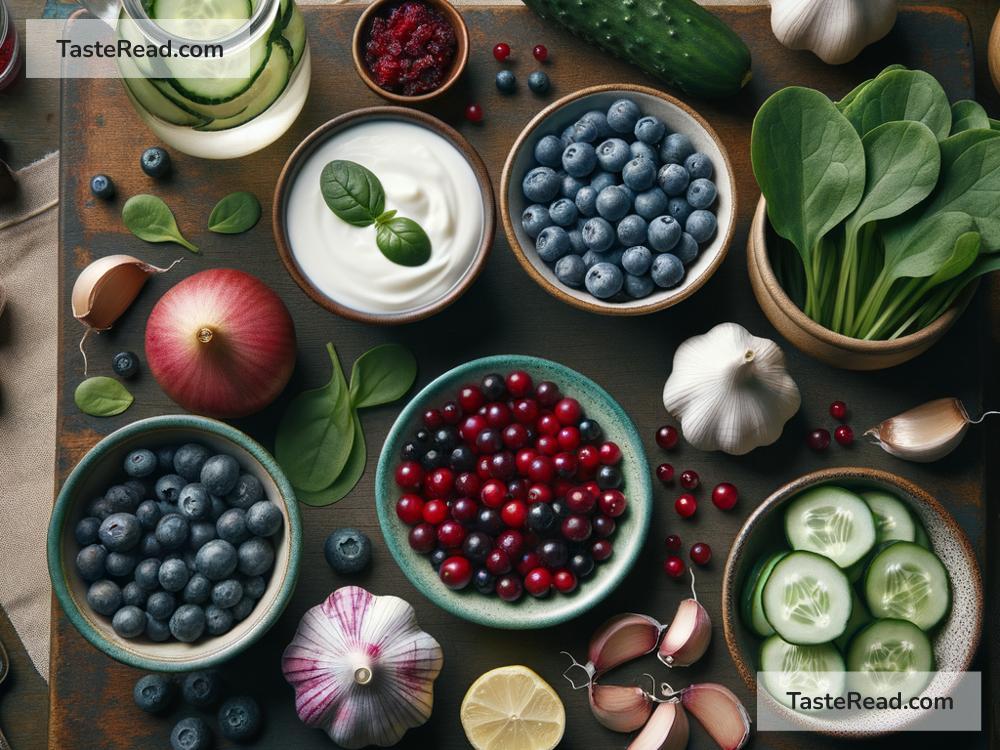Foods That Reduce the Risk of Urinary Tract Infections (UTIs)
Urinary tract infections (UTIs) are a common health problem that affect millions of people each year. They occur when bacteria enter the urinary tract, which includes the bladder, kidneys, ureters, and urethra. UTIs can cause uncomfortable symptoms like burning during urination, frequent urges to pee, cloudy urine, and even abdominal pain. While antibiotics are often used to treat UTIs, preventing them in the first place is the best approach. Fortunately, certain foods can help reduce the risk of UTIs by supporting your urinary health and strengthening your body’s natural defenses against infection.
In this article, we’ll share some simple, everyday foods that can help keep your urinary tract healthy and reduce your risk of recurring UTIs.
Cranberries
Cranberries are one of the best-known foods for preventing UTIs. They contain compounds called proanthocyanidins that stop bacteria (specifically Escherichia coli, or E. coli) from sticking to the walls of the urinary tract. If bacteria can’t latch onto the urinary tract lining, they’re less likely to cause an infection.
While cranberry juice is a popular choice for UTI prevention, go for unsweetened or low-sugar versions, as sugary drinks can worsen symptoms in some people. You can also consume dried cranberries or cranberry supplements as an alternative. However, remember that cranberries are not a cure for UTIs—they’re a preventive measure.
Blueberries
Similar to cranberries, blueberries are filled with antioxidants and have anti-inflammatory properties that can support lifelong urinary health. These little fruits contain compounds that help prevent bacteria from binding to the urinary tract lining. On top of that, blueberries are packed with vitamins and help improve overall immune function, making it harder for infections to take hold in your body.
Adding fresh or frozen blueberries to your smoothies, salads, yogurt, or oatmeal is an easy way to incorporate them into your daily diet.
Probiotic-Rich Foods
Probiotics are beneficial bacteria found in certain foods that help maintain a healthy balance in your gut and urinary tract. They can play a critical role in preventing UTIs by crowding out harmful bacteria and boosting your immune system. Foods rich in probiotics include:
- Yogurt (choose varieties with live and active cultures)
- Kefir
- Kimchi
- Sauerkraut
- Miso soup
Eating probiotic-rich foods regularly can help restore balance to your body and reduce your risk of infection, especially if you’ve recently taken antibiotics, which can disrupt your natural bacterial defenses.
Garlic
Garlic is a powerful food when it comes to fighting infections and boosting immunity. It contains a compound called allicin, which has strong antibacterial and antifungal properties. Allicin may help fight off the bacteria responsible for UTIs and prevent them from becoming a recurring problem.
Adding fresh garlic to your cooking is a simple and effective way to harness its health benefits. You can also use garlic supplements, but consult with your doctor before doing so.
Watermelon
Staying hydrated is essential for urinary health, and watermelon is an excellent water-rich fruit that helps keep your kidneys and urinary tract clean. Watermelon is also a natural diuretic, which means it encourages urination and helps flush bacteria out of the urinary system. Regularly eating watermelon can improve hydration while supporting your body’s ability to fight off infections.
Other hydration-friendly fruits and vegetables include cucumbers, oranges, and celery.
Vitamin C-Rich Foods
Vitamin C, also known as ascorbic acid, is an important nutrient for urinary tract health. It makes urine more acidic, which can help reduce the growth of harmful bacteria in the urinary tract. Foods high in vitamin C include:
- Oranges
- Lemons
- Strawberries
- Bell peppers
- Pineapples
- Kiwi
Consuming vitamin C-rich foods regularly strengthens your immune system and protects against UTIs.
Herbal Teas
Certain herbal teas can improve urinary function and reduce the risk of UTIs. For example:
- Green tea: Contains antioxidants that may inhibit the growth of bacteria.
- Chamomile tea: Known for its anti-inflammatory and soothing properties.
- Dandelion tea: Acts as a natural diuretic that helps flush out the urinary tract.
Drinking herbal teas can double as hydration while offering additional benefits for your urinary health.
Whole Grains
Whole grains, such as oats, quinoa, and brown rice, are high in fiber, which supports a healthy digestive system and overall immunity. Healthy digestion is important for avoiding UTIs because constipation can put pressure on the urinary tract and create conditions in which bacteria thrive. By eating whole grains regularly, you reduce the risk of complications that contribute to infections.
Stay Hydrated
While specific foods can help protect against UTIs, one of the most important things you can do for urinary health is to stay hydrated. Drinking plenty of water makes it easier for your body to flush out bacteria from the urinary tract. Aim for at least 8 glasses of water a day, and avoid sugary or caffeinated drinks that can irritate your bladder.
Conclusion
Preventing UTIs doesn’t have to be complicated. Incorporating these simple, nutrient-rich foods into your diet can support urinary health and reduce your risk of infection. Cranberries, blueberries, probiotics, garlic, watermelon, vitamin C-rich foods, herbal teas, and whole grains work together to strengthen your immune system, fend off harmful bacteria, and keep your urinary tract in top shape.
With these changes, along with staying hydrated, you’ll be taking important steps toward a healthier, UTI-free lifestyle! Remember, always consult your doctor for recurring or severe urinary symptoms, and don’t hesitate to seek professional guidance when needed.


